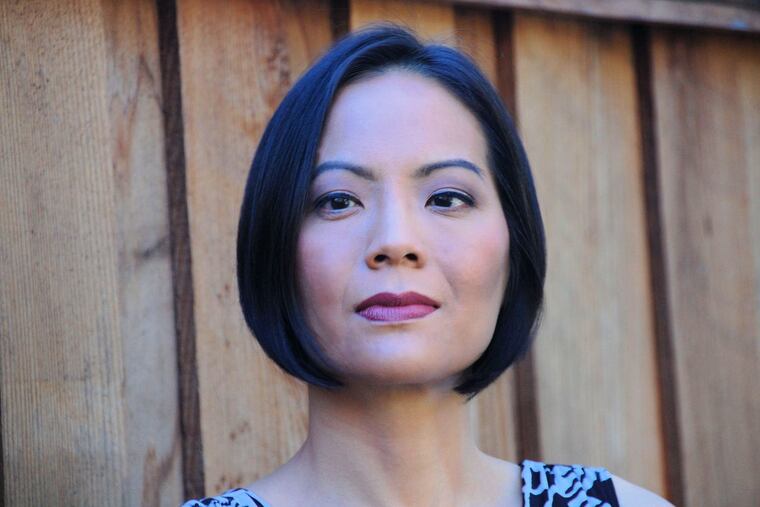Vivian Fung piece premiered by Daedalus Quartet
Vivian Fung's new clarinet quintet, "Frenetic Memories," was programmed with Ives and Prokofiev.

In Vivian Fung's Clarinet Quintet: Frenetic Memories, given its local premiere Sunday afternoon, the clarinetist played two or more notes at once. The four string players of the Daedalus Quartet slid eerily between pitches. What did it all mean?
To the Canadian-born, Juilliard School-trained Fung, it meant one thing. She told Sunday's Philadelphia Chamber Music Society audience that in gathering folk singing from southwest China, she "basically did the Bartok thing."
But we go to concerts with the ears we have. If there were specific cultural references to music in southwest China to be gleaned, they went right past our Western ears unappreciated on any deep level.
To drive home the point that music reveals its meaning in layers, the Daedalus Quartet couldn't have chosen a better piece than Ives' String Quartet No. 2. Like a lot of Ives, it is woven with quotes. When "Dixie" surfaced, listeners in the American Philosophical Society audience exchanged glances.
Ethnic source material means something, and maybe more so now than at any other point since the Ives was finished in 1913. (It wasn't performed until 1946.)
Dissent is built into the piece. Ives called its three movements a quartet for "4 men who converse, discuss, argue (in re 'Politick'), fight, shake hands, shut up — then walk up the mountain side to view the firmament!"
Ives glorifies nothing in this work; his quick quote of "Dixie" is no Confederate monument. Shreds of Beethoven and others pass by quickly. But the overwhelming presence is Ives' core musical language — dissonant but expressive, alternately craggy and delicate, and completely lacking in sentimentality. The last movement is a serious steamroller of strident music, and, strikingly more than a century after its writing, is utterly unlike anything else.
The Daedalus — noted last season for playing all the Beethoven quartets at the University of Pennsylvania — could have extended the folk-music theme by programming Prokofiev's String Quartet No. 2 but instead played the No. 1 in B Minor, Opus 50. The piece showed off especially well the group's second violinist, Matilda Kaul.
Clarinetist Romie de Guise-Langlois joined the group for the Fung premiere (the work was co-commissioned by PCMS with Chamber Music Northwest and the Chamber Music Society of Lincoln Center), and she was a knockout player. Fung not only asks for multi-phonics but also a number of other special techniques. But it was the more ethereal moments of Frenetic Memories where strengths of the ensemble and piece came together most impressively.
A taped singer from the Yi minority ethnic group appeared at one point, a lovely touch one wished the composer had left as a surprise rather than telling the audience to expect it.
Fung conjures a head-spinning number of ensemble sounds from these spare forces. At one point, the music seems to orbit around the natural harmonic series, and a drone appears at another. The piece ends with all the instruments drooping their pitch in a downward slide.
What was folk-inspired and what was Fung? What was the Yi woman singing about? Meaning was elusive, even as the pure sound intrigued.